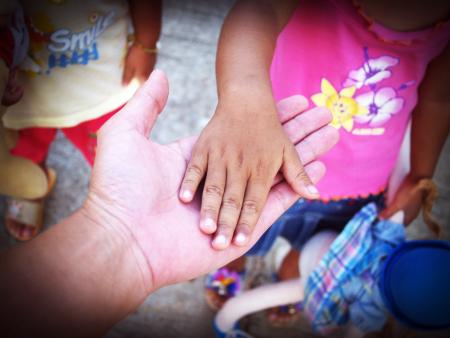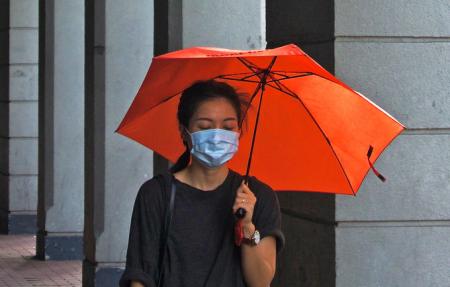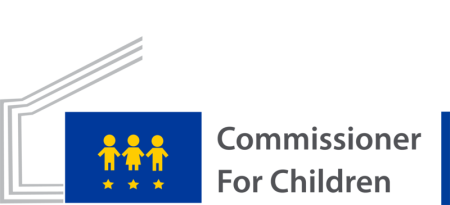
ISTANBUL, Turkey — At age 13, Sesili still has a lot of different ideas about what her future might hold. Her favourite classroom subject is physics, and she says she’s interested in interior and fashion design, as well as child psychology, as potential career paths.
But one thing is not in doubt. “I am going to graduate from school, of course,” says the ninth-grader in Tbilisi, Georgia. She wants to get married and have children, too, but not anytime soon.
“I will probably get married somewhere in my thirties,” Sesili says. “Because before that I want to see the world and get well-educated, even have some fun.”
Girls like Sesili can achieve their dreams when they enjoy the same support, opportunities and rights as boys. But too many still face obstacles as a result of their gender.
Rosita, a 16-year-old Roma girl in Tirana, Albania, had to drop out of school in the sixth grade. “My mother is ill and can’t take care of the family, so I look after the house and help my brothers when they come home from school,” she says. “I would be happy to start school again too, but I don’t think there will be many opportunities that would allow me to go back. I don’t want to get married young like my oldest sister, I want to become someone in life.”
Limited access to education and employment; child marriage and teenage pregnancy; poverty and social exclusion; increased vulnerability due to humanitarian emergencies; and discriminatory social and cultural norms and the laws and practices that uphold them are among the obstacles keeping girls from reaching their full potential.
Protect the health and rights of adolescent girls
UNFPA works to protect the health and rights of adolescent girls through access to sexual and reproductive health counselling, information and services; comprehensive sexuality education; and through encouraging girls’ empowerment and participation in the decisions that most affect them. UNFPA also works with boys and men to advance gender equality, and to encourage the abandonment of harmful practices and stereotypes.
To recognize girls’ rights and the unique challenges they face realizing them, the United Nations General Assembly in 2011 passed a resolution adopting 11 October as the International Day of the Girl Child. This year, UNFPA’s Regional Office for Eastern Europe and Central Asia marked the date by checking in with some of the girls featured at the pivotal age of 10 as part of the State of World Population 2016 launch. As they have become teenagers, some have begun to feel the pressures of gender discrimination more keenly.
“I used to think it was easier for girls to make their dreams come true, but now my opinion has changed,” says Olya, a 15-year-old ninth-grader in Ukraine. “I think it’s more difficult for women, because of sexism and the way many men interfere in their lives.”
Olya’s life has changed in other ways over the past four years. She and her parents had to flee their hometown of Donetsk due to the years-long armed conflict in eastern Ukraine. They now live in a secure, government-controlled area where she can go to school and plan her future. Olya loves history, makeup and spending time with her group of close friends, and wants to be a lawyer when she grows up. She would like to get married and have a family at some point, but worries about raising children if the conflict continues.
Gjulsefa, a 16-year-old from North Macedonia’s Roma community, feels more confident about the future role she sees for herself as a mother. “When I was little I wanted to have one child,” she says. “Now, as I grow older, I want to have more children – five, or even six.”
Marriage and motherhood will wait until she’s finished school, though. Gjulsefa says she plans to study until she is 24 or 25 years old. “I’d like to be a makeup artist, a nurse, a teacher – a little bit of everything,” she says. “My dream is to live in a world with no hunger, no thirsty or barefoot children, with love, peace and respect among people.”
When girls are nurtured by their families and communities in a way that allows them to fulfil their potential, the societies around them flourish too. Girls’ dreams are not just for themselves – Gjulsefa wants to see a world where no people or animals are mistreated and there are no more wars. And Vanessa, a 14-year-old eighth-grader from Orhei, Moldova, is concerned about the health of the Earth.
“My biggest dream is that our planet stops being so polluted and that people start acting more responsibly about the environment,” says Vanessa, who loves art and wants to make it her career. “Any change starts from ourselves, so I would like to initiate and participate in campaigns for the protection of the environment.”
Unequal opportunities
But inequalities – between boys and girls, and between girls in different circumstances – remain a barrier both for individual girls to realize their ambitions, and for countries in the region to strengthen their resilience in the face of rapid demographic change.
Azize, a 14-year-old living in Alpu, Turkey, labours in the fields with her family as a seasonal agricultural worker, picking tomatoes, beets and other crops. She also helps take care of her younger siblings, but still manages to go to school – or at least, she did, before the COVID-19 pandemic forced classes to be moved online. That’s made it even harder for Azize to continue with her education.
“I want to finish college and have a good job in the city when I grow up – as a teacher, a lawyer, a police officer, maybe a doctor,” she says. “I’ve always worked hard on my lessons but I don’t have any internet, computer or smartphone so I cannot attend classes right now.”
Though education is crucial for girls’ futures, school can also be among the places where they encounter discrimination.
“Life is more difficult for girls than for boys. Teachers expect girls to sit quietly while boys can be noisy and act up,” says Tika, a 15-year-old tenth-grader from Sagarejo, Georgia. “And there are stereotypes that stop women from doing certain jobs.”
Tika already keeps a busy schedule, with private lessons in math, Russian and English in addition to her regular education. (“I used to also take dance lessons, but I quit, because I didn’t have enough time,” she says.) She plans to finish school, travel the world and get married “a little later, when I have a good job, have built up my career and live a good life” – perhaps as a journalist like her aunt.
“I can imagine myself in the field, reporting from the scene,” Tika says.
“To realize my dreams, I need, first and foremost, my own faith and hope, as well as parental help and support, and of course, to study,” she adds. “It’s good for girls to keep fighting for their goals and to break the stereotypes that exist in society.”
















